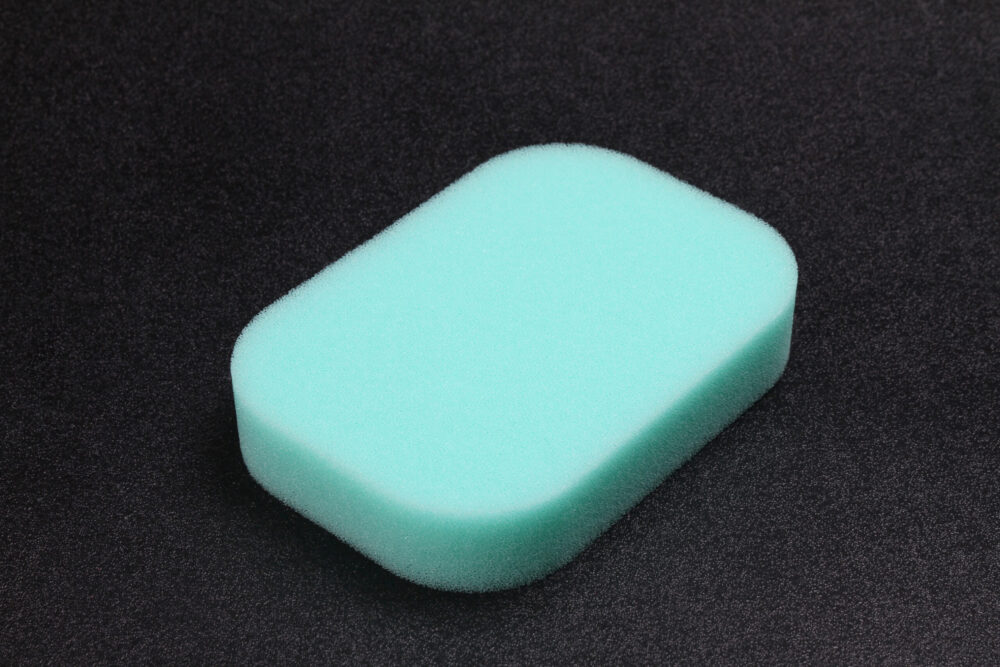[et_pb_section fb_built=”1″ admin_label=”section” _builder_version=”4.16″ da_disable_devices=”off|off|off” global_colors_info=”{}” da_is_popup=”off” da_exit_intent=”off” da_has_close=”on” da_alt_close=”off” da_dark_close=”off” da_not_modal=”on” da_is_singular=”off” da_with_loader=”off” da_has_shadow=”on”][et_pb_row admin_label=”row” _builder_version=”4.16″ background_size=”initial” background_position=”top_left” background_repeat=”repeat” global_colors_info=”{}”][et_pb_column type=”4_4″ _builder_version=”4.16″ custom_padding=”|||” global_colors_info=”{}” custom_padding__hover=”|||”][et_pb_text admin_label=”Text” _builder_version=”4.16″ background_size=”initial” background_position=”top_left” background_repeat=”repeat” global_colors_info=”{}”]In medical device development, the choice of materials is a critical determinant of a device’s effectiveness, safety, and versatility. One material that has steadily gained prominence in various medical applications is polyurethane foam. Its unique combination of properties makes it well-suited for a range of applications in the healthcare industry. Here are some examples of materials that polyurethane foam can replace in medical devices:
- Traditional Bandaging Materials for Wound Care. Foam dressings with varying levels of absorption and permeability can be tailored to specific wound types, providing a more comfortable and effective solution.
- Positioning Devices. It offers excellent pressure distribution and support.
- Medical equipment accessories can conform to the equipment’s shape, providing a comfortable and supportive interface between the patient and the machine. Particularly useful with imaging and diagnostic equipment.
- Foam-Based Dressings. These dressings offer enhanced absorbency, reduce the risk of maceration, eliminate particles present in gauze, and provide a more sterile environment for wound healing.
- Hard Plastics in Surgical Instruments require a softer, non-abrasive surface. This can enhance patient safety during procedures and reduce the risk of damage to delicate tissues.
- Drug delivery applications for complete coverage of intended areas.
Versatility in Design: Adaptable to Diverse Medical Applications
Designers and engineers favor polyurethane foam for its capacity to address the intricate demands of various medical scenarios, making it a versatile and reliable material in pursuing innovative healthcare solutions. PU foam is currently used in drug delivery, orthopedic, diagnostic, wound care, and wound prep environments.
Patient Comfort and Safety: A Paramount Consideration
Patient comfort is a top priority in medical device design, and polyurethane foam excels in this regard. The soft cushioning surface provided by polyurethane foam enhances patient comfort during extended use, a critical factor in applications such as orthopedic supports. Beyond comfort, the inherent biocompatibility of polyurethane foam ensures that it meets rigorous safety standards. Its hypoallergenic properties and minimal risk of adverse reactions make polyurethane foam an excellent choice for components that come into direct contact with the patient’s skin or bodily fluids.
Shock Absorption and Impact Resistance: Critical in Surgical Settings
Polyurethane foam’s exceptional shock absorption and impact resistance properties make it indispensable in surgical settings. Instruments and devices equipped with polyurethane foam components can withstand the rigors of surgical procedures, reducing the risk of damage or malfunction. This resilience is particularly crucial in delicate procedures where precision instruments are involved, ensuring the reliability and longevity of the medical equipment and contributing to positive patient outcomes.
Customization for Patient-Specific Solutions
The ongoing trend toward personalized and patient-specific treatments in the medical field underscores the importance of customization in medical devices. Polyurethane foam’s moldability and ease of customization make it an excellent choice for creating patient-specific components. Whether it’s a custom-shaped orthopedic insert or a single-use pre-saturated drug delivery system, polyurethane foam enables the development of tailored solutions that align with the unique needs of individual patients. This adaptability enhances patient care and reflects the industry’s commitment to advancing toward more individualized and effective medical solutions.
Durability and Longevity: Essential in Medical Equipment
The demanding nature of medical environments necessitates durable materials. This inherent resilience contributes to the longevity of medical devices. It enhances cost-effectiveness by reducing the frequency of equipment replacements, thus aligning with the broader goals of sustainability and efficiency in healthcare.
The prevalence of polyurethane foam components in modern medical devices is a testament to the material’s customization. From enhancing patient comfort to providing critical attributes like shock absorption and impact resistance, supporting patient-specific solutions, and ensuring the longevity of medical equipment, polyurethane foam is a player in the quest for advanced and patient-centric healthcare solutions. As technological advancements continue to shape the landscape of medical device development, polyurethane foam’s role is poised to expand further, driving innovation and improving healthcare outcomes.
Foamtec Medical is a polyurethane foam manufacturer and crafter of custom medical device foam components. Start your product journey with us today. We have a team of technical sales managers, R&D managers, and chemists available. Please tell us how we can help you by providing details on the form below.[/et_pb_text][/et_pb_column][/et_pb_row][et_pb_row _builder_version=”4.23.4″ _module_preset=”default” global_colors_info=”{}”][et_pb_column type=”4_4″ _builder_version=”4.23.4″ _module_preset=”default” global_colors_info=”{}”][et_pb_button button_url=”#short-form” button_text=”Contact Us” button_alignment=”center” _builder_version=”4.23.4″ _module_preset=”default” global_colors_info=”{}”][/et_pb_button][/et_pb_column][/et_pb_row][/et_pb_section][et_pb_section fb_built=”1″ admin_label=”Popup – #short-form” module_id=”short-form” module_class=”popup” _builder_version=”4.19.1″ _module_preset=”default” width=”950px” da_is_popup=”on” da_popup_slug=”short-form” da_disable_devices=”off|off|off” border_radii=”on|12px|12px|12px|12px” box_shadow_style=”preset1″ global_colors_info=”{}” da_exit_intent=”off” da_has_close=”on” da_alt_close=”off” da_dark_close=”off” da_not_modal=”on” da_is_singular=”off” da_with_loader=”off” da_has_shadow=”on”][et_pb_row _builder_version=”4.19.1″ _module_preset=”default” width=”85%” global_colors_info=”{}”][et_pb_column type=”4_4″ _builder_version=”4.19.1″ _module_preset=”default” global_colors_info=”{}”][et_pb_text _builder_version=”4.19.1″ _module_preset=”default” header_3_font=”|700|||||||” header_3_text_align=”center” header_3_text_color=”#283891″ global_colors_info=”{}”]
Tell Us About Your Project
[/et_pb_text][et_pb_code _builder_version=”4.19.1″ _module_preset=”default” width=”80%” module_alignment=”center” custom_padding=”25px|25px|25px|25px|true|true” border_radii=”on|12px|12px|12px|12px” border_width_all=”1px” border_color_all=”#CCE3E2″ global_colors_info=”{}”]




